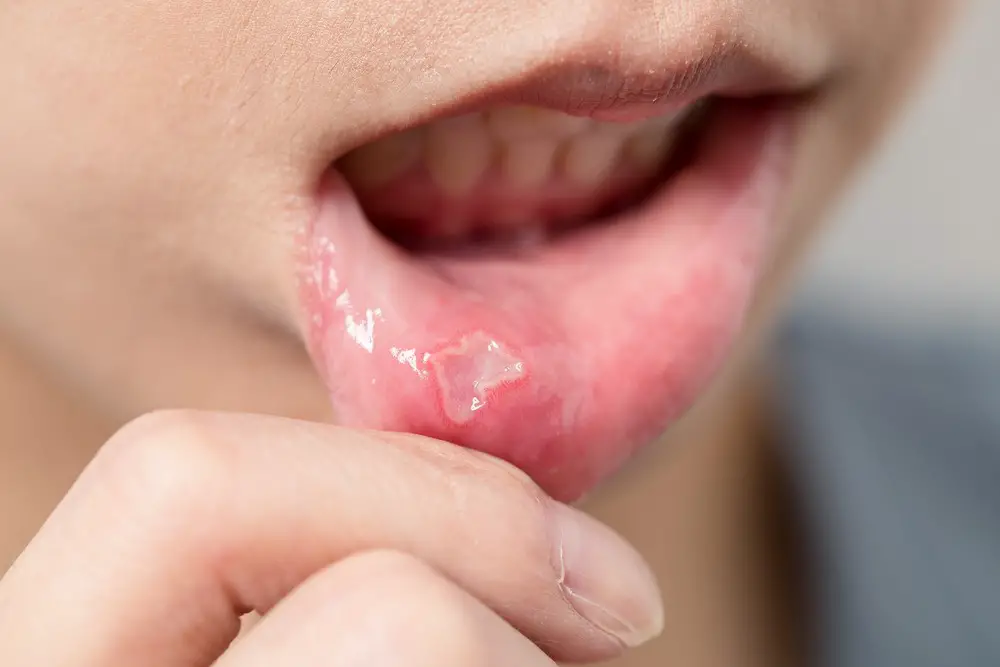As a BetterHelp affiliate, we receive compensation from BetterHelp if you purchase products or services through the links provided
It’s no secret that stress can take a toll on our mental and physical bodies. But did you know that one of the health conditions stress can contribute to is ulcers?
While ulcers can be caused by a number of things, including certain medications and bacterial infections, stress is a common trigger. Here’s what you need to know about the link between stress and ulcers and some tips for managing both.

What are ulcers, and what causes them?
Ulcers are open sores that develop on the skin or mucous membranes. They’re usually painful and can take a long time to heal.
There are different types of ulcers, but the most common are:
-A peptic ulcer is an open sore that develops on the lining of the stomach or small intestine. A build-up of stomach acid causes peptic ulcers.
-A pressure ulcer is an open sore that develops when there is constant pressure on one area of the skin. Pressure ulcers are common in people who are bedridden or wheelchair-bound.
Mouth ulcers are also common. Mouth ulcers are open sores that develop on the mucous membranes of the mouth. They’re usually painful and can take a long time to heal.

What are the symptoms of ulcers?
The symptoms of ulcers vary, depending on the type of ulcer. However, the most common symptoms are:
-Pain that gets worse when you eat or drink
-Heartburn
-Nausea
-Loss of appetite
-Weight loss
-Blood in your stool
If you have any of these symptoms, it’s essential to see a doctor so they can diagnose and treat your ulcer.
Can stress cause ulcers?
Stress ulcers are a type of peptic ulcer caused by stress. Stress ulcers are more common in people with severe illnesses like cancer or HIV/AIDS.
However, stress ulcers can also occur in people who don’t have a severe illness. For example, people who experience chronic stress from their job or home life may be more likely to develop stress ulcers.
While stress doesn’t directly cause ulcers, it can make them worse. That’s because stress can increase the production of stomach acid. When there’s too much stomach acid, it can eat away at the lining of the stomach, causing an ulcer.
In addition, stress can make it challenging to eat a healthy diet and get enough rest. This can also lead to ulcers.
Stress can also cause mouth ulcers. Mouth ulcers are small, painful sores that can develop on the tongue, gums, or inside of the cheeks.
Like stress ulcers, mouth ulcers are more common in people with severe illnesses. But they can also occur in people with a lot of stress.
Mouth ulcers can be painful and make it difficult to eat or drink. In severe cases, they can cause weight loss.
How can I prevent ulcers and stress?
There are a few things you can do to prevent ulcers and stress:
Eating a healthy diet that’s high in fiber and low in fat can help reduce your risk of developing ulcers. A healthy diet should include plenty of fruits, vegetables, and whole grains.
Getting enough rest is also essential. Be sure to get at least 7-8 hours of sleep each night. Getting the correct amount of shut-eye can help reduce your risk of ulcers and stress. Similarly, making sure you regularly exercise can also help reduce stress levels. Exercise does not have to be strenuous to be effective; even moderate exercise can help manage stress effectively.
Managing your symptoms
If you’re already suffering from ulcers, there are a few things you can do to manage your symptoms.
Some foods can make ulcer symptoms worse. These include spicy foods, caffeine, alcohol, and tobacco. If you have ulcers, it’s important to avoid these trigger foods.
Over-the-counter and prescription medications can also help relieve ulcer pain. Antacids, H2 blockers, and proton pump inhibitors can treat ulcers effectively.
If you’re struggling with stress, there are a few things you can do to manage it. relaxation techniques such as yoga or meditation can be helpful. Talking to a therapist can also be beneficial.
In severe cases of stress, medication may be necessary. Antidepressants or anti-anxiety medications can help relieve the symptoms of stress.
When to see a doctor
If you have any of the symptoms of ulcers, you must see a doctor. Ulcers can be painful and can take a long time to heal. If left untreated, they can also lead to severe complications such as bleeding or perforation of the stomach.
If you’re struggling to manage your stress, talking to your doctor can also be helpful. They may be able to recommend relaxation techniques or therapy. In severe cases, they may also prescribe medication.
Treatment for ulcers usually involves a combination of medication and lifestyle changes. With treatment, most ulcers will heal within 8-12 weeks. However, some ulcers may take longer to heal.
If you have ulcers, it’s essential to follow your treatment plan and see your doctor for regular checkups. With treatment, most ulcers will heal and won’t come back. However, some people may develop recurrent ulcers.
If you have stress-related ulcers, it’s also essential to manage your stress. This can help prevent ulcers from developing or coming back.
Summarizing: can stress cause ulcers?
Yes, stress can cause ulcers. Stress can increase the production of stomach acid, which can eat away at the stomach lining and cause an ulcer. Stress can also make it challenging to eat a healthy diet and get enough rest, leading to ulcers.
Additionally, stress can cause small mouth ulcers and painful sores that can develop on the tongue, gums, or inside of the cheeks. If left untreated, ulcers can lead to serious complications such as bleeding or perforation of the stomach.
If you’re struggling to deal with stress in your life , it’s essential to talk to your doctor. They may be able to recommend relaxation techniques or therapy. In severe cases, they may also prescribe medication. With treatment, most ulcers will heal and won’t come back. However, some people may develop recurrent ulcers.
FAQs
- 7 Ideas to Help You Relax and Unwind on a Family Vacation - April 27, 2025
- How Having Cybersecurity Protection Helps You Relax - April 25, 2025
- 8 Reasons Why Spending Time Outside Calms You Down - April 25, 2025
This site contains affiliate links to products. We will receive a commission for purchases made through these links.



